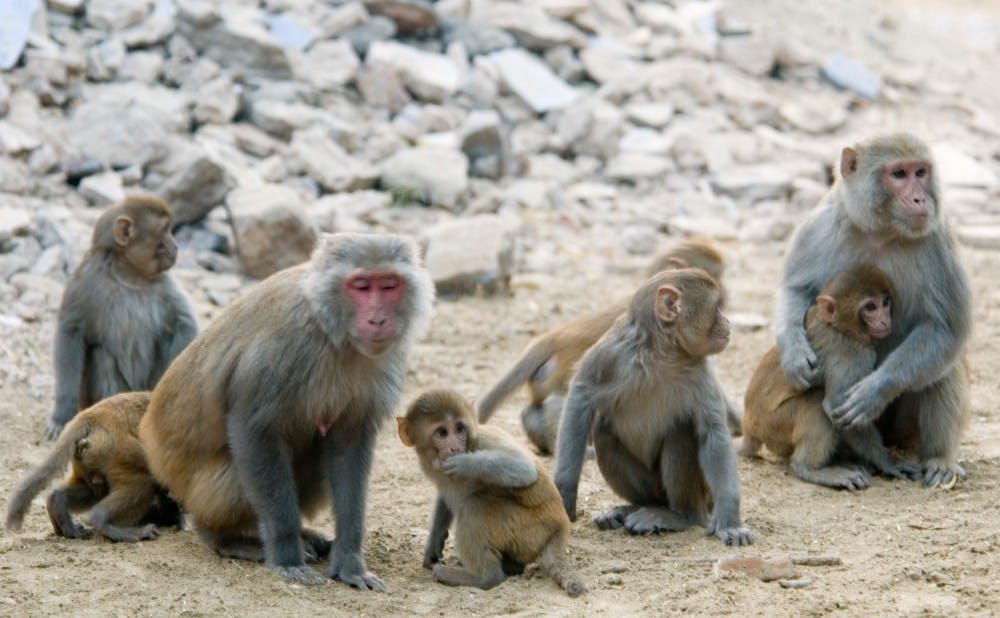Wealth and status have long been correlated with health, with the richest one percent of American men outliving the poorest one percent by up to 15 years. According to a new study, this might be true for other species as well.
Researchers at Duke have found that which immune cell genes were switched on and off generally differed between rhesus monkeys of a higher social status and their lower status counterparts. More genes involved in the inflammatory response were turned on in lower-ranking rhesus monkeys, leading to unwanted inflammation. In humans, disorders associated with chronic inflammation include cardiovascular disease and diabetes.
The findings may have implications when looking at early life adversity in humans, as consequences of low social status in childhood might not be as striking later on in life as previously thought, explained Noah Snyder-Mackler, a postdoctoral fellow in the evolutionary anthropology department and first author of the study.
“Given the current political climate, there is a positive message with these findings when looking at how they apply to humans, in that there is in fact something that is outside an individual’s control that contributes to whether they are low status or high status,” he said. “Despite someone’s limited access to resources and perhaps to health care, there is some direct effect of status itself that influences their immune function.”
In the initial part of the study, when female macaques with no previous interactions were sorted into groups, a natural ranking arose as the females added earliest ranked higher than those introduced later. Researchers discovered differences in how over 1,600 of the 9,000 examined genes were expressed, with striking differences in cells that comprise the immune system’s first line of defense against pathogens.
Then, when females were removed from their original ranks that they’d spent a year in and assigned to the opposite end of the dominance spectrum, their immune system cell function changed to reflect their new status.
Snyder-Mackler added that the much of the results could be generalized to humans.
“Macaques actually turn out to be a good model for social status in humans because we share a lot of biology and neurobiology and genetics with them, these primates," he said. "Social hierarchies have similar effects on rhesus macaques as they do on humans in terms of physiology."
The primates proved to be the ideal model because researchers could control for reverse causality—in which people in poorer health could fall to lower status because of their compromised well-beings. Experimental manipulation controls for this by allowing researchers to establish a direct link between the immune system and status.
Snyder-Mackler added that efforts to reduce social status gaps—such as drug intervention or strengthening one's social support system—should be escalated to mitigate the negative health effects among people of lower social status.
Get The Chronicle straight to your inbox
Signup for our weekly newsletter. Cancel at any time.

